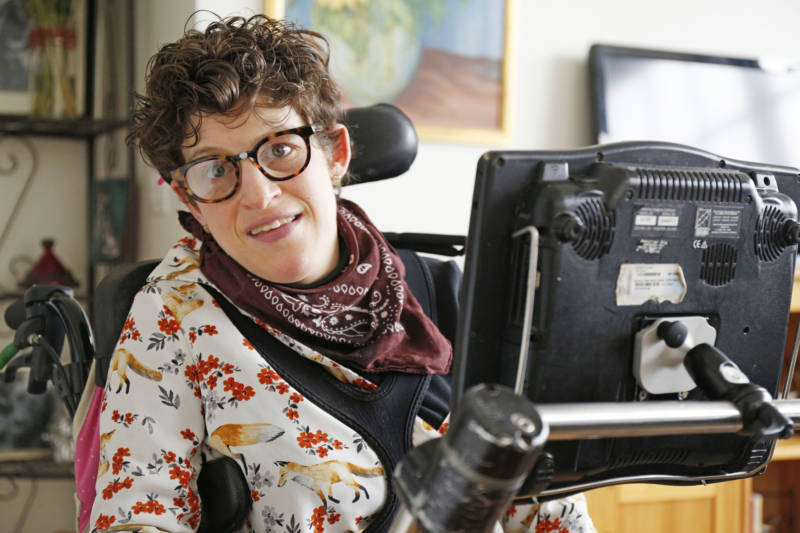I was there the night my sister, Ana, was born at San Francisco’s Mount Zion Hospital. I was 9, and I watched as she came out blue, the umbilical cord snarled around her neck. Those unknown minutes her brain was deprived of oxygen had a lasting impact. She was eventually diagnosed with athetoid cerebral palsy.
She’s 37 now. Caregivers help feed and dress her, and she talks through a device attached to her wheelchair.
As a baby, she endured terrible seizures. But she could read by the time she was 3. Her life has been marked by stunning accomplishments: traveling to Europe to present at conferences, giving talks at schools around the Bay Area, meeting renowned theoretical physicist Stephen Hawking.
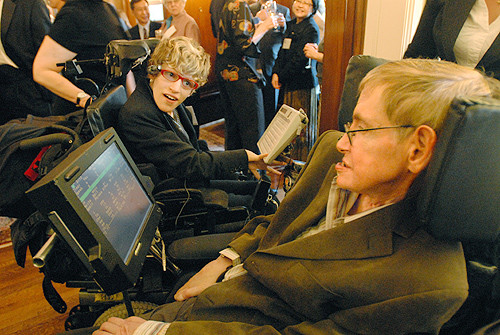
But Ana also faces life-threatening challenges. The simple act of eating can be terrifying. All of her food has to be blended, and she sometimes chokes when she eats. She’s dealt with staph infections that have landed her in the hospital, over and over again.
But somehow Ana has weathered all of this with patience, even humor.
When we were kids, I always worried about something terrible happening to her. I felt powerless to protect her.
Right now Ana Berlowitz is writing a book about her life, an incredible feat given the exhausting effort it takes to spell out even single words on her communication device.
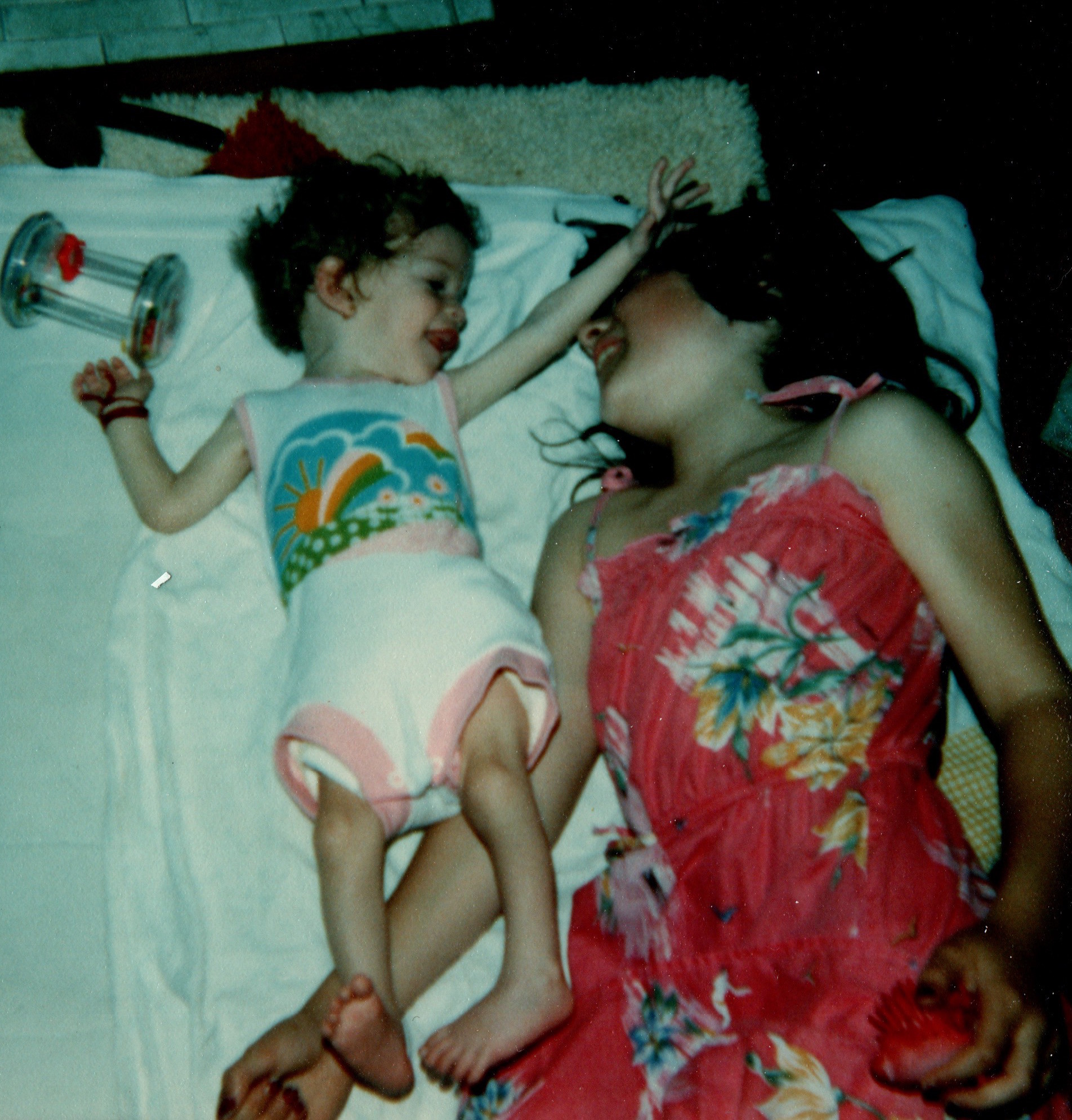
“Throughout my life, people expected very little of me,” she says in the introduction to her book. “I had to work to make myself heard, and even then, not everyone got what I was about.”
And as I’ve been reading the drafts of her book, I’ve been horrified to learn about the ways she’s been hurt by people who’ve broken her trust, taken advantage of her and not let her advocate for herself. I asked her if I could sit down with her to talk about what it means to try to make yourself heard.
Ana recently moved from Oakland to San Francisco, in part so she could be closer to me and other family members. I try to see her once a week, and on this visit, I bring my audio recording kit.
When we first see each other, her huge blue eyes flicker with joy, and she flails her arms. That’s because the kind of cerebral palsy she has makes it hard for her to control her movements, especially when she's excited.

Once Ana calms down, she looks intensely at her communication device. She can’t use her hands to type. Instead, there’s a reflective dot attached to her glasses, and it controls a tracker in the device. Moving her head slowly, she types something out.
After about 30 seconds, the device spits out one word: "Hi!" The voice sounds a bit like a younger Siri, but more electronic, stiffer and a little crackly. And the device is not always reliable. A lot of times — because it's not working or one of the people taking care of her forgot to charge it — she is silenced, unable to communicate.
I can recall countless times, on airplanes, in restaurants or even at home, when her communication devices would fail her. Our mother would break out the hand-drawn, laminated sheets of paper she created for Ana when she was first learning how to read. One of us would point to pictures or words, Ana arching her body back in assent when we got to the right one, painstakingly spelling out her needs and desires, letter by letter.
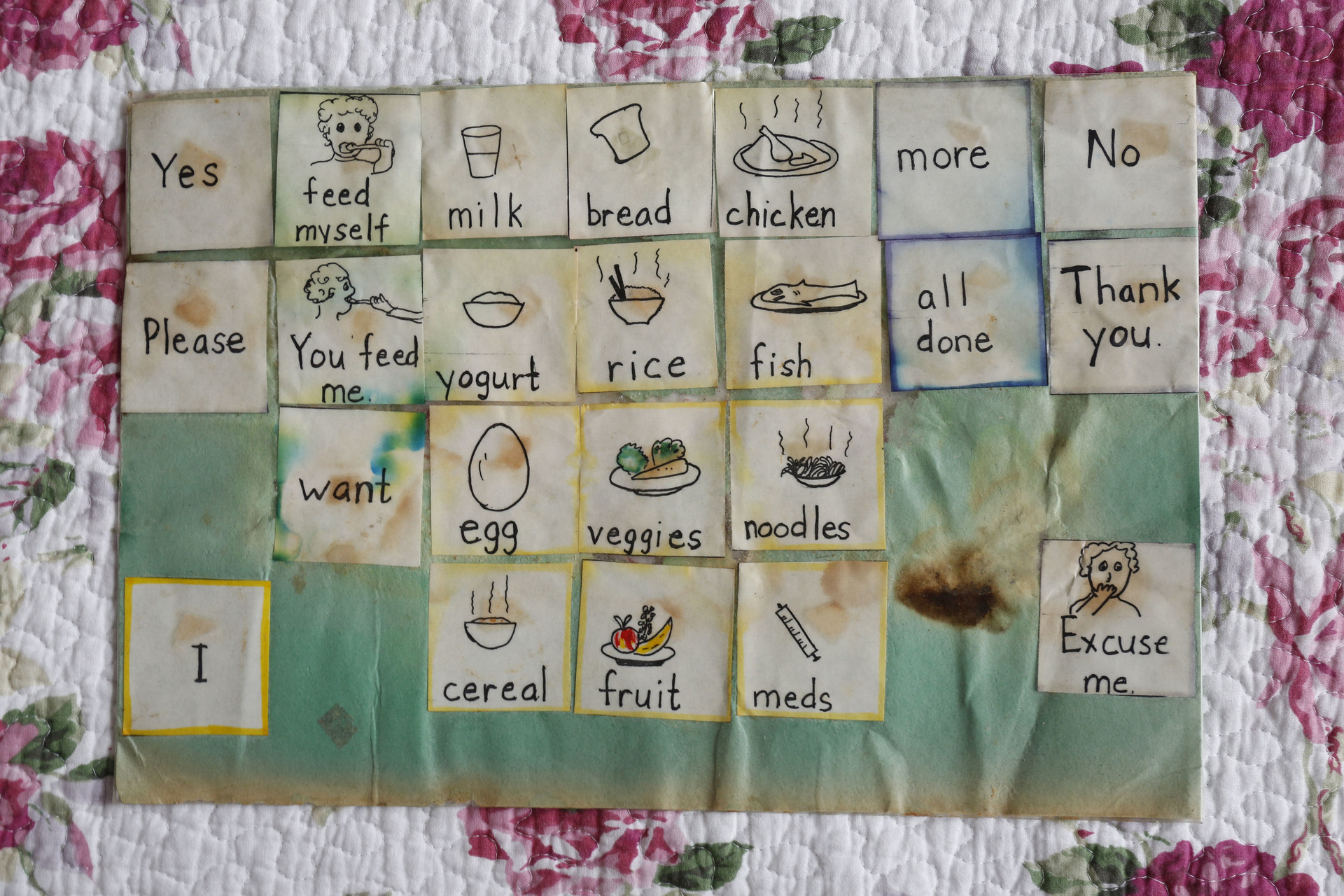
I ask Ana what it feels like to rely on other people and machines to express herself. She moves her head again, activating a beep from her communication device as she types the word “Weird.”
I press her to say more. “Like a robot,” she says.
“And what does that feel like?” I ask.
“Frustrating.”
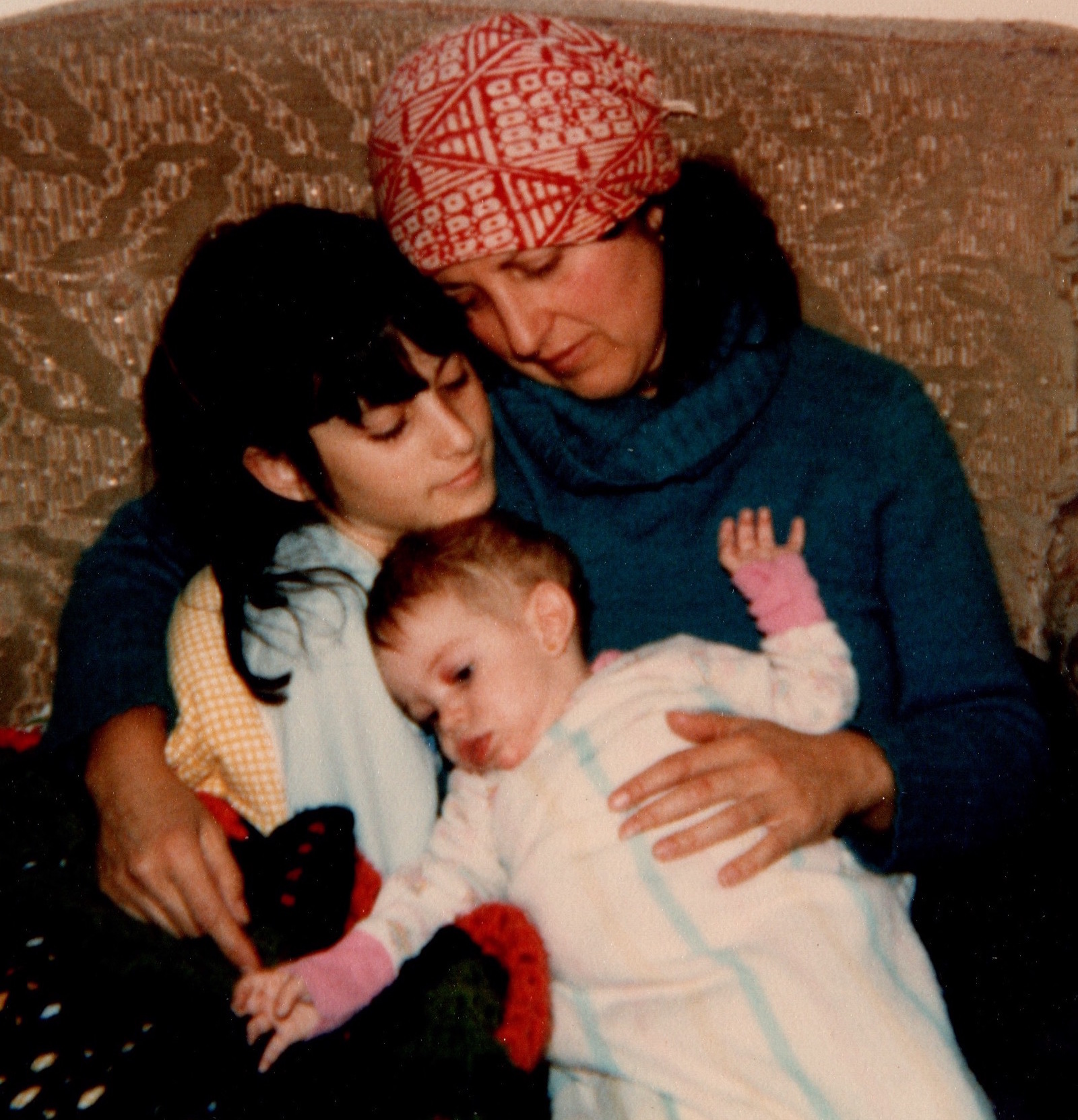
She devotes a lot of her book to talking about the caregivers and attendants she’s had over the years. I ask her why.
“It's. So. So. Important,” she responds. I ask her what it feels like to have people take care of her in such intimate ways: helping feed her, taking her to the bathroom.
“I. Feel. Like. A. Baby,” she types. And then she clicks another button with her tracker so the words come out in a sentence. “I feel like a baby.”
Ana has had some wonderful attendants over the years. They’ve cared for her with respect and kindness. They share meals, adventures. They are there for her when we, her family, can’t be. But in the book she's writing, she describes the ways in which some of the people charged with taking care of her have hurt her, whether by accident or neglect:
I refuse to let anybody control me. Whenever someone tries to look over my shoulder at my communication device “just for fun,” without asking my permission, I feel abused. When people have ignored me when I’ve told them I needed to go to the bathroom, I feel abused. I have gotten urinary tract infections from holding it in too long, and have soiled myself from being ignored. Some of my attendants have ripped away my communication device because they did not want to hear me. ... I can’t stand it when people ignore me or neglect me. That is as cruel as physical abuse.
Hearing that guts me, makes me angry and sad. “It really is abuse, what you experienced,” I tell her. “But I'm really glad to hear that you refuse to let anybody control you or hurt you in this way. How will you do that?”
“Train,” she says, meaning training her attendants to do a better job in caring for her.
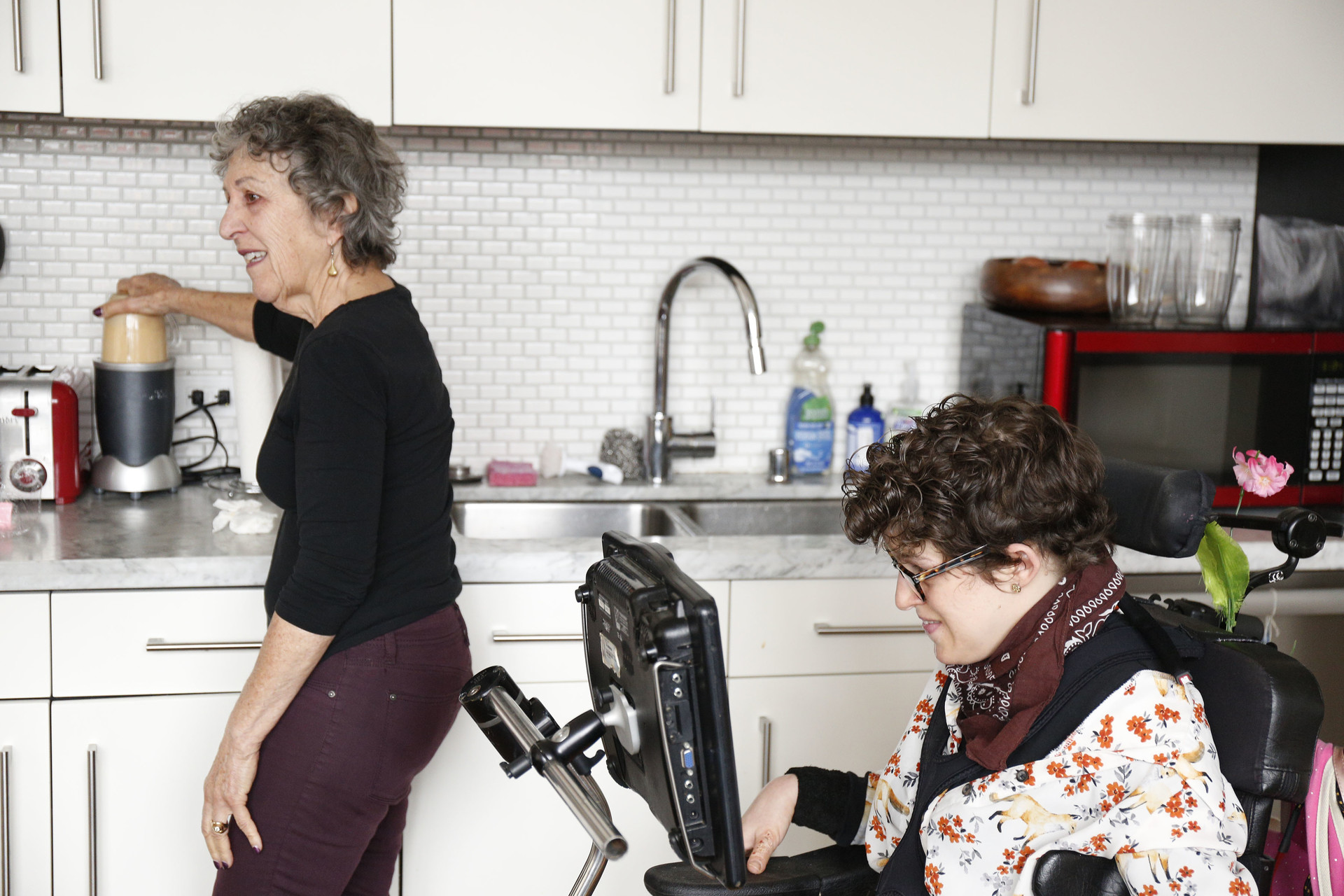
Ana also writes about a boyfriend she had for nine years. He also has cerebral palsy and uses a wheelchair. In her book, she describes how he would use her caregivers for his own personal care and never pay them:
When we went anywhere I always ended up paying. He made me sleep naked after I bought all those cute negligees. I guess I was trying to please him. God only knows why I let this happen. As a disabled woman it is hard to find love and I just wanted a boyfriend.
Although he wielded a lot of power over her, she eventually broke up with him. I ask her how her experience with him impacted the way she sees relationships.
“You need to be careful of who you date,” she says.
I ask her what she wants people to know about what it's like to live with her disability.
Struggling to keep her head still, she aims the reflective dot on her glasses at the tracker in her communication device. The letters “A. M. A. Z.” sound, and then the word “Amazing.” I ask her why it’s amazing to have cerebral palsy, and she stares at her device and continues typing.
“So. Many. Opportunities.” She goes on to name some of the things she’s able to do: swimming, taking dance classes, all of the public speaking engagements she’s had at conferences and schools.
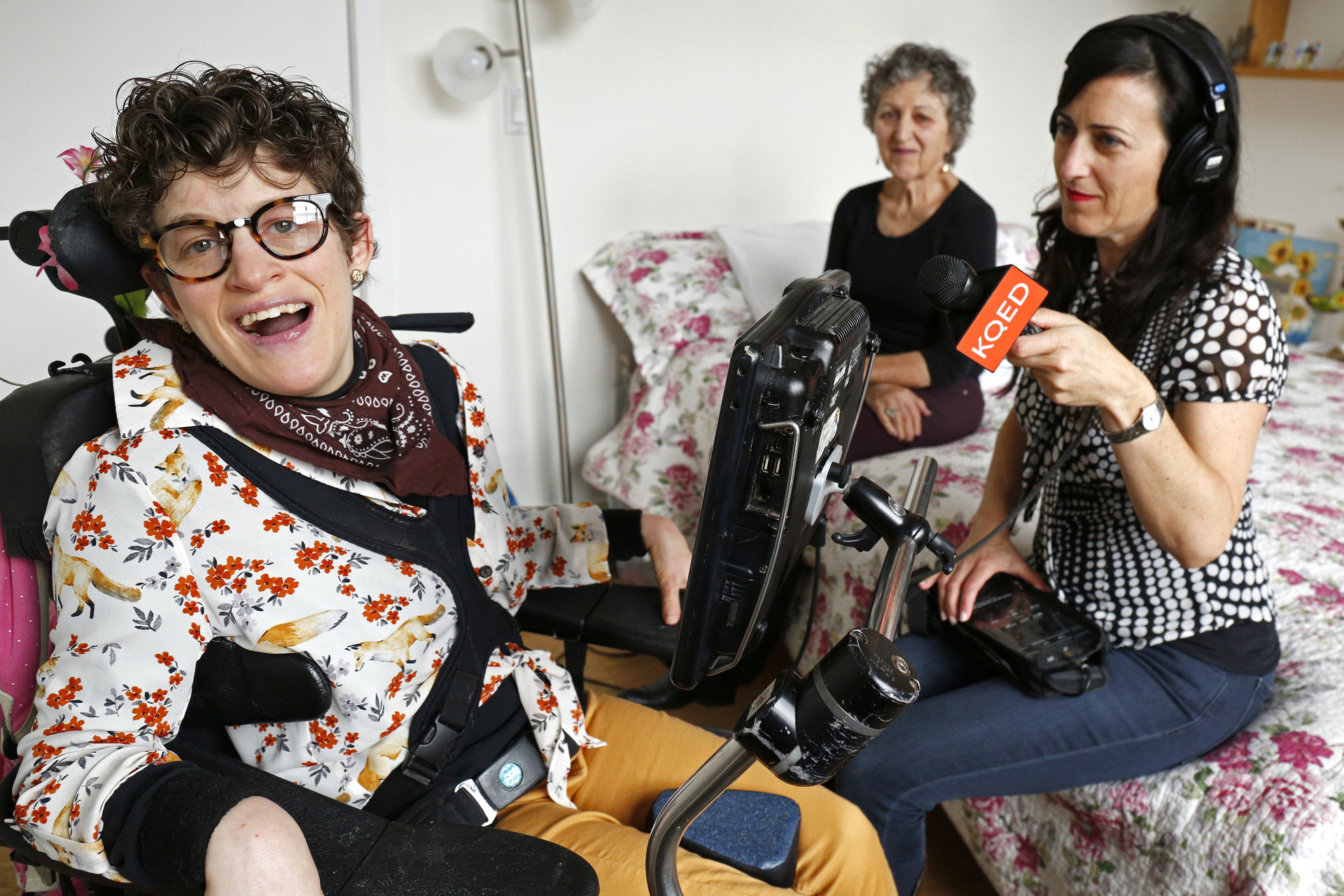
Listing all those opportunities is so ... Ana.
I realize I have so much to learn about my sister and about what it means to be disabled. And that I need to check my own assumptions, judgments and pity. Ana says that’s one of the reasons why she’s writing her book. In one chapter she describes a high school class she took about popular culture:
“I gave a presentation on disability as a culture. That idea stuck in my head. The disability community is my culture. People need to understand my culture just as I need to understand theirs.”
“People. Fought. Really. Hard,” she types out on her communication device, and then clicks, “People fought really hard.”
“For the rights of people with disabilities?” I ask.
“Yes,” she clicks, and the robotic words — her words, coming through the device — exclaim, “Never give up.”
"I write this book for the young generation," Ana says in her memoir, "hoping you can be heard and understood, no matter what voice you use."
